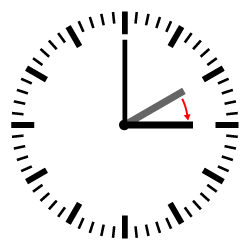Daylight saving time (DST)—also summer time in several countries, in British English, and European official terminology—is the practice of advancing clocks so that evenings have more daylight and mornings have less. Typically clocks are adjusted forward one hour near the start of spring and are adjusted backward in autumn.
When DST starts in central Europe, clocks advance from 02:00 CET to 03:00 CEST.
Though mentioned by Benjamin Franklin in 1784, the modern idea of daylight saving was first proposed in 1895 by and it was first implemented during the First World War. Many countries have used it at various times since then.
The practice has been both praised and criticized. Adding daylight to evenings benefits retailing, sports, and other activities that exploit sunlight after working hours but can cause problems for evening entertainment and other occupations tied to the sun. Its effect on health and crime is less clear. Although an early goal of DST was to reduce evening usage of incandescent lighting, formerly a primary use of electricity, modern heating and cooling usage patterns differ greatly, and research about how DST currently affects energy use is limited or contradictory.
DST clock shifts present other challenges. They complicate timekeeping, and can disrupt meetings, travel, billing, recordkeeping, medical devices, heavy equipment, and sleep patterns. Software can often adjust computer clocks automatically, but this can be limited and error-prone, particularly when DST protocols are changed.
In a typical case where a one-hour shift occurs at 02:00 local time, in spring the clock jumps forward from the last moment of 01:59 standard time to 03:00 DST and that day has 23 hours, whereas in autumn the clock jumps backward from the last moment of 02:59 DST to 02:00 standard time, repeating that hour, and that day has 25 hours. A digital display of local time does not read 02:00 exactly at the shift to summertime, but instead jumps from 01:59:59.9 forward to 03:00:00
In Europe clock shifts are usually scheduled on the last weekend of March and the last weekend in October to lessen disruption to weekday schedules. A one-hour shift is customary.
No copyright infringement intended. For educational, non-commercial purposes only.



No comments:
Post a Comment
Note: Only a member of this blog may post a comment.